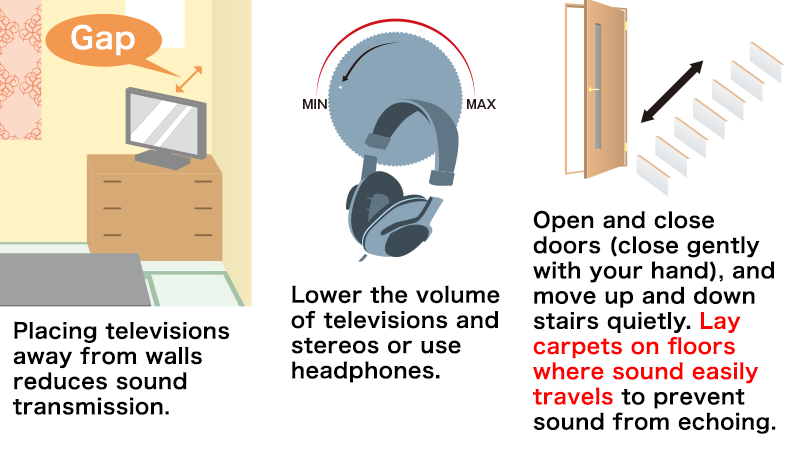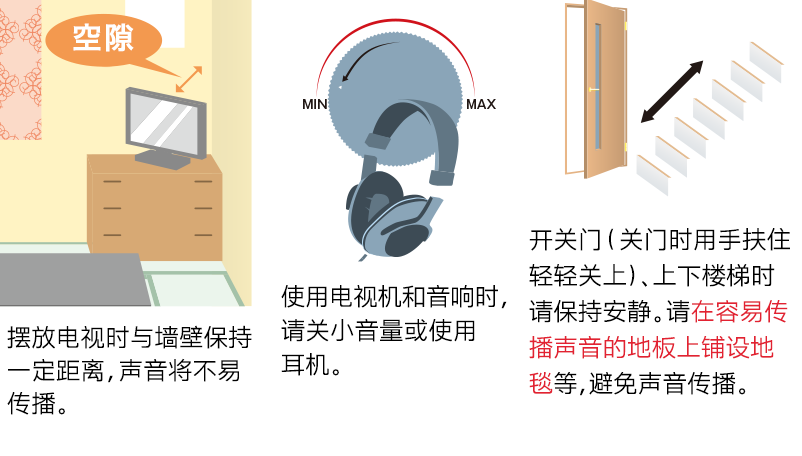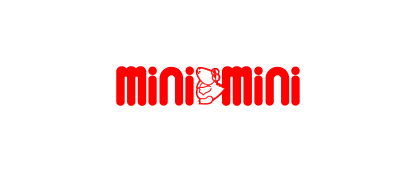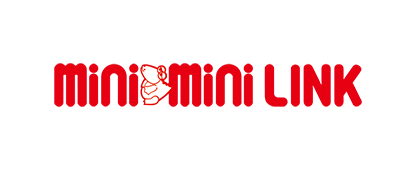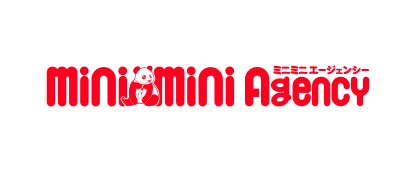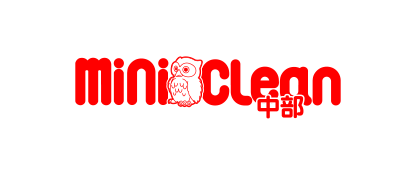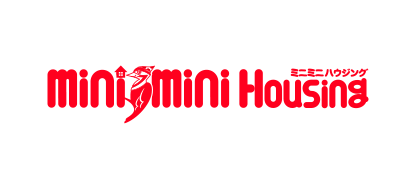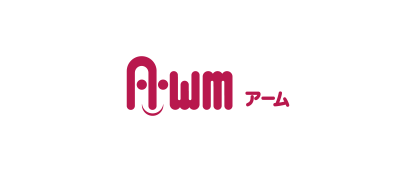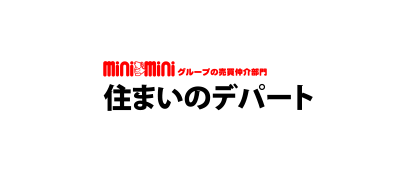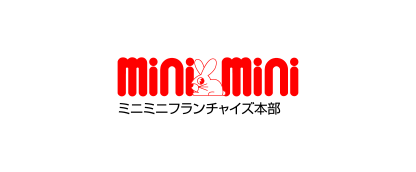Post-Move-In Etiquette Guidelines
Noise
Noise can cause disputes with neighbors, so please be mindful about it. In housing complexes, a certain level of noise is considered acceptable as “normal living noise.”
However, even sounds that aren’t bothersome during the day can be louder than expected at night. Be especially mindful with late-night activities such as bathing, laundry, cleaning, and watching television, as these can be considered noisy.
Please refer to theSoundproofing Measures pagefor details.
Garbage disposal
Follow the guidelines set by your municipality for garbage disposal.
In addition, “Specified Home Appliance Items” under the Act on Recycling of Specified Kinds of Home Appliances (air conditioners, televisions, refrigerators, freezers, washing machines, and clothes dryers) are not collected by the municipality. These items are recycled through appliance retailers or directly by the manufacturers.
Improper disposal of garbage may lead to complaints from neighbors, so please strictly adhere to the following guidelines.
Basic garbage disposal rules
- Strictly adhere to the garbage collection schedule. Do not dispose of garbage on the day before collection.
- Use only designated garbage bags if required. Undesignated garbage bags will not be collected.
- When disposing of garbage, place it in the designated location. Please note that the disposal location for bulky items may differ from the designated location.
- Place garbage at the designated location by 8:00 A.M. on the day of collection. *Times may vary by region, so please confirm with the Environmental Office.
- Contact your municipality to arrange for the disposal of bulky items in the designated manner.
- When moving in or out, do not dispose of garbage or cardboard boxes at garbage collection points or garbage stations. Have the moving company take them away or bring them to the Environmental Office in your municipality.
Keeping pets (excluding pet-friendly properties)
Pets (dogs, cats, etc.) are not permitted in condominiums managed by minitech, including temporary keeping.
Pets may cause problems for neighbors due to noise and odors, so be sure to strictly adhere to this rule. If you are found to be keeping a pet, it will be considered a breach of contract. You will be required to restore the property to its original condition and move out.
Common area use
Hallways, staircases, entrance halls, and other areas are common areas for tenants.
Occupying them without authorization, even temporarily, is prohibited.
Do not leave personal belongings in these areas, as they may block passageways in case of an emergency. The same applies to bicycle parking areas and parking lots. Only park in the designated areas.
If personal belongings are left in common areas without permission, or if bicycles or motorcycles are not parked in designated areas (including abandonment), we may remove them after notifying the tenant.
Please note that we will not be responsible for any items that are removed.
Bicycle parking areas
Only park bicycles and motorcycles in designated areas. Additionally, remove any unused bicycles or motorcycles promptly. When moving out, take them with you to your new residence.
Please note that bicycles and motorcycles that appear to be abandoned may be removed after notifying the tenant.
Please note that we will not be responsible for any bicycles or motorcycles that are removed.
Parking lots
All parking spots in the parking lot are designated (except for non-designated properties).
Do not park in undesignated parking spots or on the street, as it may cause issues or hinder emergency services. Also, warn visitors not to park in undesignated parking spots or on the street.
Veranda use
Do not place flower pots or other items on veranda or balcony railings, as they may fall or drip water and inconvenience downstairs neighbors.
Additionally, some veranda floors are not waterproof, so make sure to not allow water or air conditioner drainage to leak to lower floors.
Toilets
Adhere to the following when using toilets.
Do not flush anything other than toilet paper. Flushing other paper products or foreign objects can cause clogs in the drain pipes. (Common examples include sanitary napkins, toilet seat covers, and children’s toys.) Additionally, the floor of the toilet is not waterproof. Do not use water when cleaning; instead, wipe the area dry.
Condensation and mold
Condensation may occur during seasons with significant temperature differences between inside and outside. Buildings that are airtight are more prone to condensation, which can lead to mold, peeling wallpaper, and stains, so it is important to maintain your room regularly. If water droplets appear, wipe them up immediately with a dry cloth.
During the rainy season or in winter, when condensation is common, mold may form in closets, behind furniture, and in bathrooms and sink areas.
Adequate ventilation is highly effective in preventing condensation and mold. Additionally, keep sliding doors and storage areas (closets, shoe cabinets) slightly open to improve airflow.
How to prevent condensation and mold:
Nine tips for preventing humidity, condensation, and mold
(1) Gas and oil stoves emit a lot of moisture, so make sure you ventilate them properly.
(2) Always use a range hood or exhaust fan when cooking in the kitchen.
(3) Concrete walls in newly constructed mansions contain a lot of moisture. Avoid drying laundry indoors and using humidifiers as much as possible.
(4) Open windows, closets, and sliding doors on sunny days to ventilate your room.
(5) When placing furniture, leave a gap between the furniture and the wall.
(6) Use slatted wooden platforms or casters under furniture in closets to improve ventilation.
(7) Aluminum frames and window glass are prone to condensation, so wipe up any water droplets immediately. Applying waterproof spray to window curtains in advance can also help prevent mold and dust from accumulating.
(8) Close interior doors when taking a bath to prevent moisture from entering the room.
(9) Thermometers and humidity meters are essential for managing room humidity. Use your air conditioner or dehumidifier to control indoor humidity during rainy season.
Other
Do not dispose of food scraps or oil down the kitchen drain. You may be responsible for repair costs if there is a clog in the drain, kitchen, or septic tank. Also, you are not permitted to install a food waste disposer. Adhere to the building's usage regulations to coexist harmoniously with other tenants.
Do not bring any hazardous items that may cause damage to the building or inconvenience to other tenants.
Exhaust fans are essential for removing dirty air and odors from your room. Clean them regularly and replace the filters as needed. Also be sure to clean the filters of heating and cooling equipment regularly.
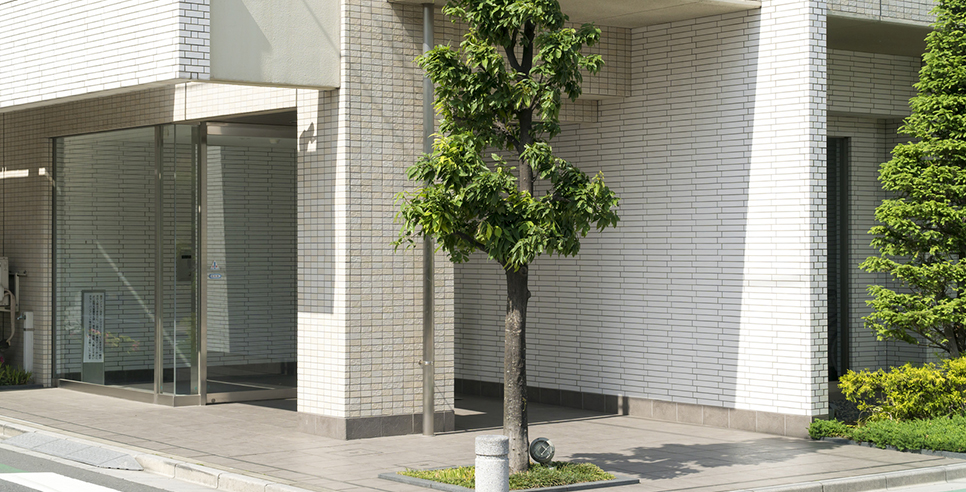
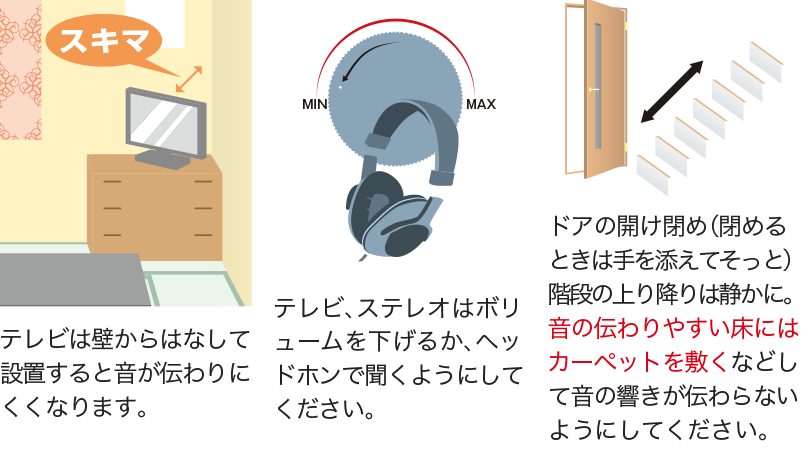
 グループの賃貸住宅物件管理を行う
グループの賃貸住宅物件管理を行う
